The Central Epidemic Command Center (CECC) yesterday released new guidelines for visitor capacity control at easily crowded places and reported two more COVID-19 cases, as well as an additional death.
The guidelines aim to regulate the number of visitors at places such as night markets, hotels, tourist spots, national parks and temples.
All people at traditional and night markets should wear masks, while market managers should stop offering free food samples and restrict access to one entrance, said Deputy Minister of the Interior Chen Tsung-yen (陳宗彥), who is deputy head of the center.
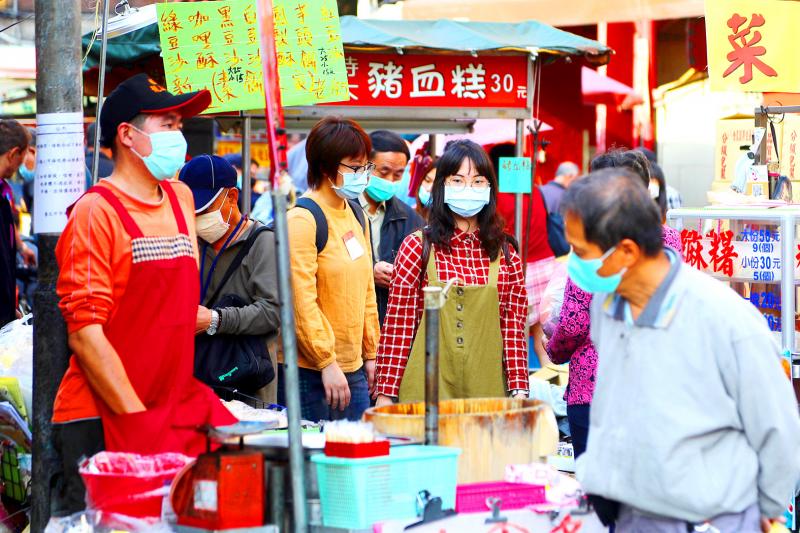
Photo: CNA
Market managers should propose capacity control plans to ensure that proper social distancing — a distance between people of 1.5m indoors and 1m outdoors — is maintained, Chen said.
Popular vendors should mark such distances for people lining up, while seating for people eating in should follow the distancing guidelines, with boards separating seats in tight spaces, he said.
The Ministry of Economic Affairs would choose some markets as demonstration sites for videos to promote the new rules, he added.
Agencies managing tourist spots and national parks should control the number of visitors by monitoring vehicle volume at adjacent parking lots, Chen said.
When half of the spaces at a parking lot next to a tourist spot are occupied, the government would text people in the area or issue warnings on roadside electronic bulletin boards asking them not to visit, he said.
Hotels and other accommodations would be required to offer booking figures to the center before any holiday of more than three consecutive days, Chen said.
Such facilities should regulate the flow of visitors after room occupancy exceeds 60 percent, he said.
Local governments should help temples in their jurisdiction plan routes for visitors to maintain proper social distancing, while the temples should not offer food to worshipers, he added.
Minister of Health and Welfare Chen Shih-chung (陳時中), who heads the center, said that the nation’s sixth COVID-19 death was confirmed late on Thursday: a man in his 70s with a history of chronic illness who was on a tour group to Egypt last month and listed as a confirmed case on March 19.
The two new cases are a woman in her 20s and a man in his 60s, Chen Shih-chung said.
The woman, who studies in the US, returned to Taiwan on Monday last week and became the 11th confirmed case among passengers on her flight, he said.
The center has previously said that the flight was operated by China Airlines (中華航空) and listed the seat numbers of those infected.
The man had visited relatives in Indonesia with his wife from Feb. 16 to March 29, Chen Shih-chung said.
While he has not developed any symptoms, he was placed in home quarantine after returning to Taiwan and then home isolation after his wife was listed as a confirmed case on Wednesday, Chen Shih-chung said.
As of yesterday, there were 382 confirmed cases in Taiwan and six deaths, he said, adding that the disease’s mortality rate in the nation is 1.57 percent.
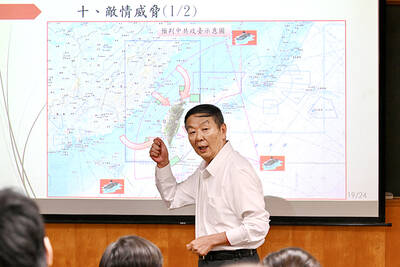
RETHINK? The defense ministry and Navy Command Headquarters could take over the indigenous submarine project and change its production timeline, a source said Admiral Huang Shu-kuang’s (黃曙光) resignation as head of the Indigenous Submarine Program and as a member of the National Security Council could affect the production of submarines, a source said yesterday. Huang in a statement last night said he had decided to resign due to national security concerns while expressing the hope that it would put a stop to political wrangling that only undermines the advancement of the nation’s defense capabilities. Taiwan People’s Party Legislator Vivian Huang (黃珊珊) yesterday said that the admiral, her older brother, felt it was time for him to step down and that he had completed what he
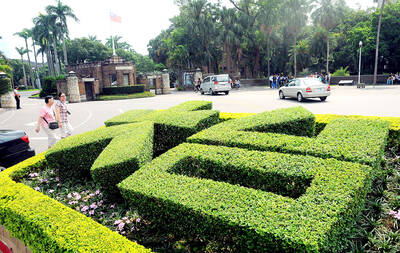
Taiwan has experienced its most significant improvement in the QS World University Rankings by Subject, data provided on Sunday by international higher education analyst Quacquarelli Symonds (QS) showed. Compared with last year’s edition of the rankings, which measure academic excellence and influence, Taiwanese universities made great improvements in the H Index metric, which evaluates research productivity and its impact, with a notable 30 percent increase overall, QS said. Taiwanese universities also made notable progress in the Citations per Paper metric, which measures the impact of research, achieving a 13 percent increase. Taiwanese universities gained 10 percent in Academic Reputation, but declined 18 percent
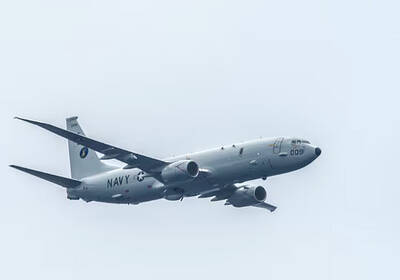
CHINA REACTS: The patrol and reconnaissance plane ‘transited the Taiwan Strait in international airspace,’ the 7th Fleet said, while Taipei said it saw nothing unusual The US 7th Fleet yesterday said that a US Navy P-8A Poseidon flew through the Taiwan Strait, a day after US and Chinese defense heads held their first talks since November 2022 in an effort to reduce regional tensions. The patrol and reconnaissance plane “transited the Taiwan Strait in international airspace,” the 7th Fleet said in a news release. “By operating within the Taiwan Strait in accordance with international law, the United States upholds the navigational rights and freedoms of all nations.” In a separate statement, the Ministry of National Defense said that it monitored nearby waters and airspace as the aircraft
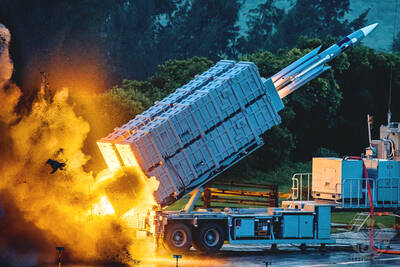
UNDER DISCUSSION: The combatant command would integrate fast attack boat and anti-ship missile groups to defend waters closest to the coastline, a source said The military could establish a new combatant command as early as 2026, which would be tasked with defending Taiwan’s territorial waters 24 nautical miles (44.4km) from the nation’s coastline, a source familiar with the matter said yesterday. The new command, which would fall under the Naval Command Headquarters, would be led by a vice admiral and integrate existing fast attack boat and anti-ship missile groups, along with the Naval Maritime Surveillance and Reconnaissance Command, said the source, who asked to remain anonymous. It could be launched by 2026, but details are being discussed and no final timetable has been announced, the source